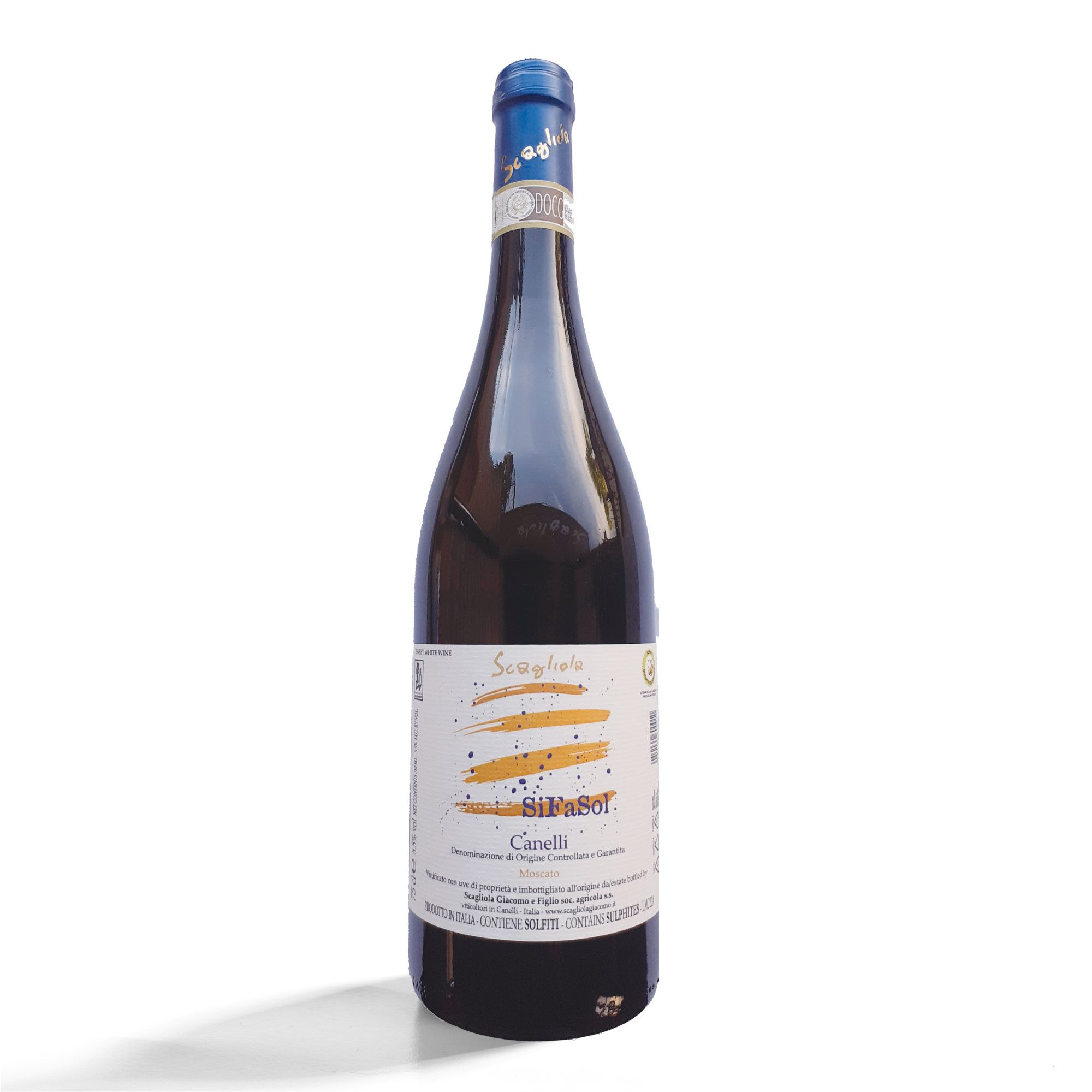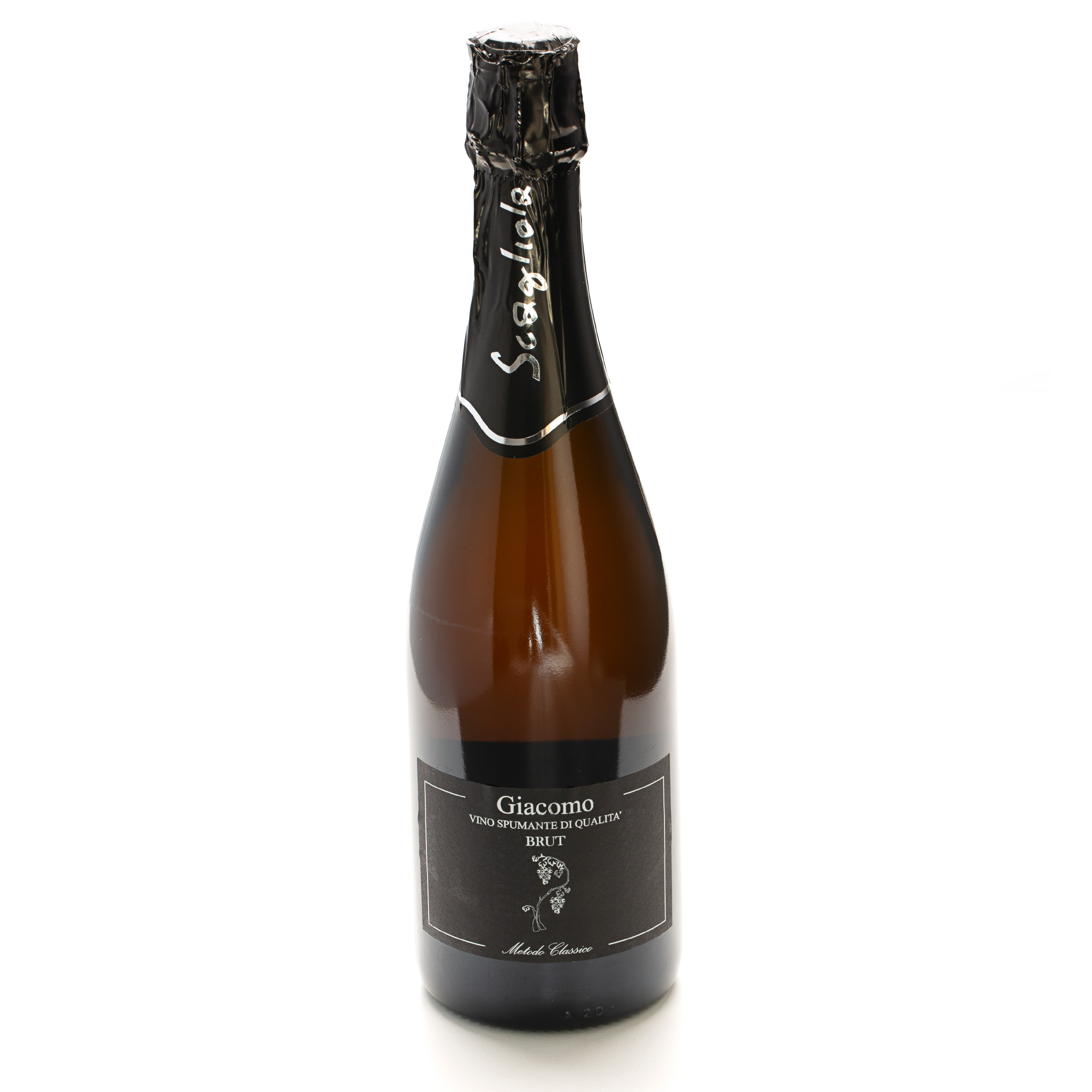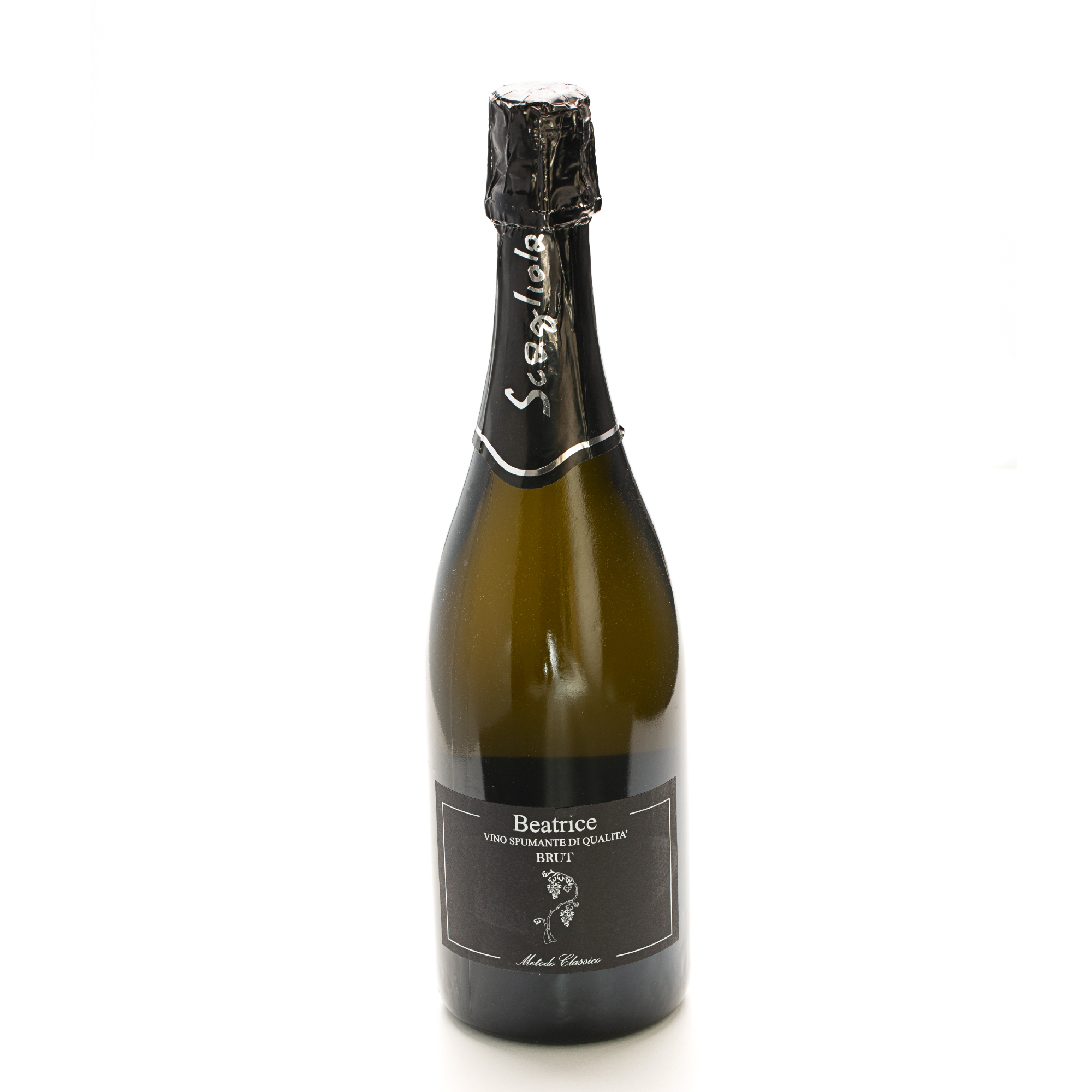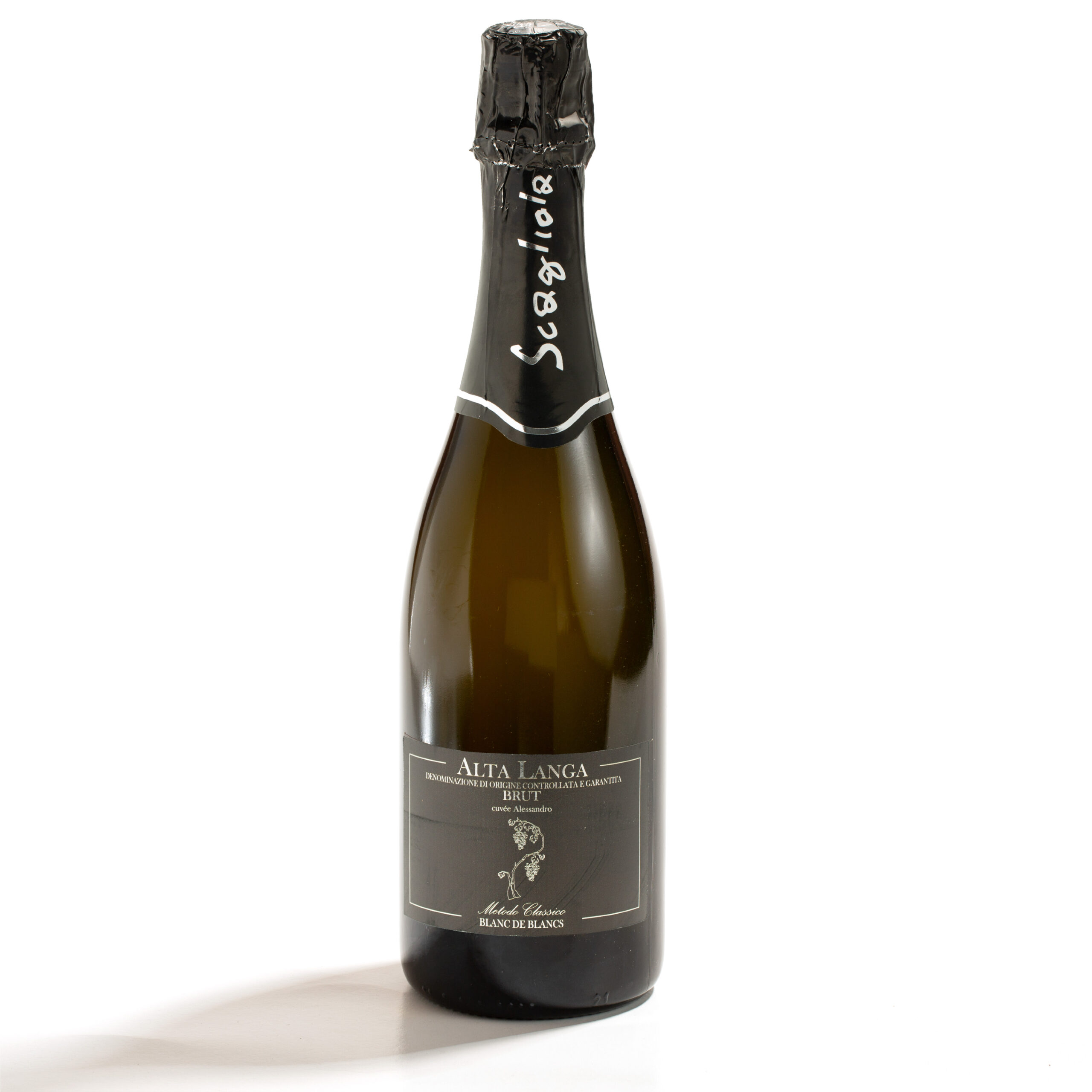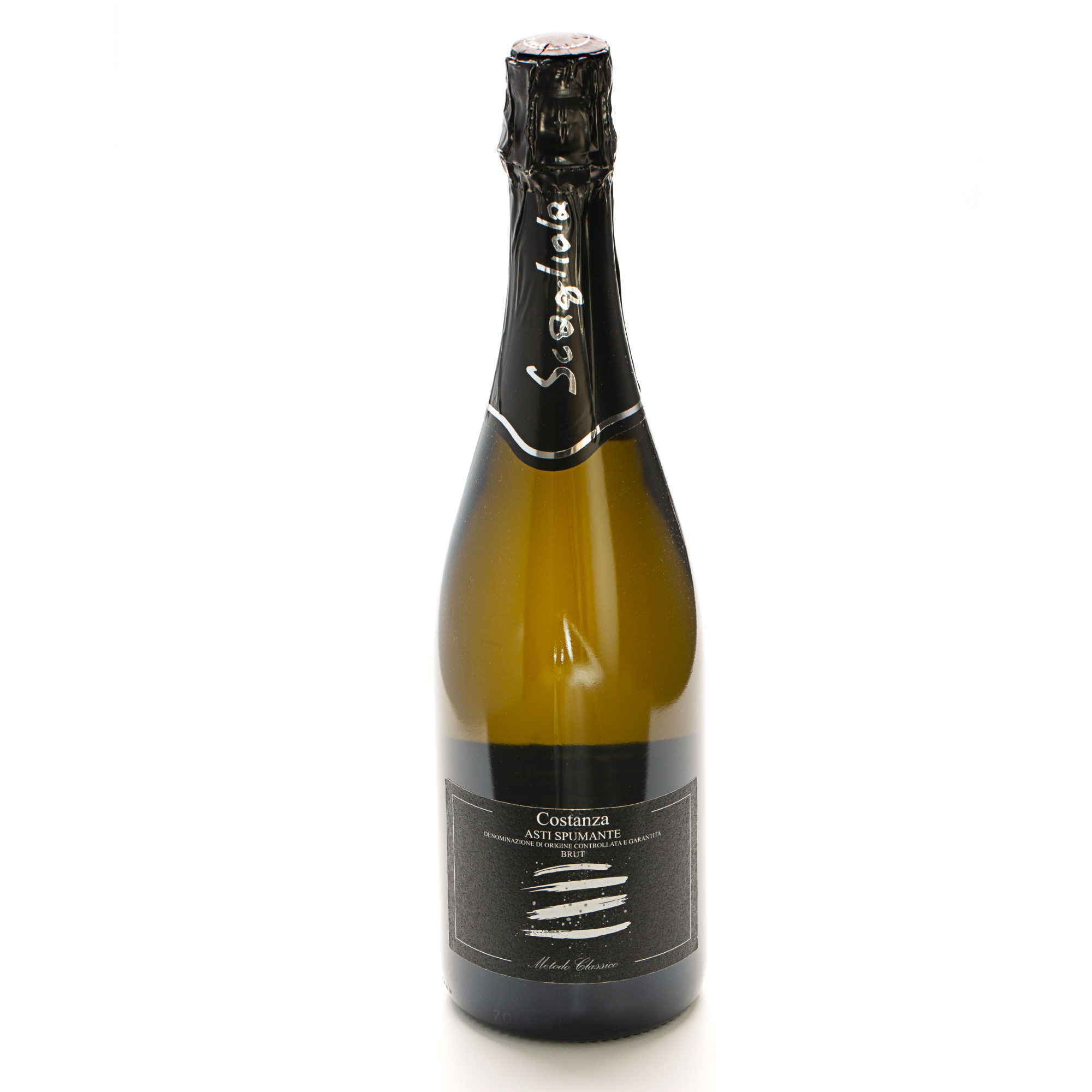Moscato d’Asti D.O.C.G. Canelli “SiFaSol”
-
GrapeMoscato Bianco of Canelli
-
SoilSandy marly soils with a high limestone percentage.
-
TrainingGuyot
-
HarvestEarly harvest in the last decade of August or fisrt decade of September as to preserve the delicate flavours of muscat grapes. Harvest is manual in 20kg cases.
-
RESA /HAAbout 10 tons.
-
Alcohol13% potential alcohol, only 5,5% alcohol by volume.
-
Vinification
Soft pressing with pneumatic press is performed immediately after harvesting. Enzymatic clarification is applied at ambient temperature with no chemical clarifying agents. After 24 hours the clarified must is racked, the deep end is centrifuged and the whole matter is placed in temperature-controlled vats at 0° C.
The must is fermented in autoclave at a 17 C° controlled temperature as to preserve the typical muscat aromatic flavours. When fermentation ends, the wine gets once again refrigerated in order to stuck fermentation and retain carbon dioxide. Some filtrations are then applied to clarify the wine, the last one is particularly important since it retains the yeasts as to avoid bottle refermentation. The wine is finally bottled with an isobaric bottling system and no contact with oxygen at all. -
Serving Temperature and food matching
10-12° C.
Typical pairing is with sweets: biscuits, pastry, hazelnut cakes and pies. Traditionally, also some contrast matching is common: with fresh salame, figs and melon (the so-called merenda sinoira). In case you would like to dare something different, hot and spicy ethnical food, especially indian, shouldn’t be underrated.
-
VitignoMoscato Bianco of Canelli
-
SoilSandy marly soils with a high limestone percentage.
-
Forma di allevamentoGuyot
-
VendemmiaEarly harvest in the last decade of August or fisrt decade of September as to preserve the delicate flavours of muscat grapes. Harvest is manual in 20kg cases.
-
RESA /HAAbout 10 tons.
-
Gradazione Alcolica13% potential alcohol, only 5,5% alcohol by volume.
-
Vinificazione
Soft pressing with pneumatic press is performed immediately after harvesting. Enzymatic clarification is applied at ambient temperature with no chemical clarifying agents. After 24 hours the clarified must is racked, the deep end is centrifuged and the whole matter is placed in temperature-controlled vats at 0° C.
The must is fermented in autoclave at a 17 C° controlled temperature as to preserve the typical muscat aromatic flavours. When fermentation ends, the wine gets once again refrigerated in order to stuck fermentation and retain carbon dioxide. Some filtrations are then applied to clarify the wine, the last one is particularly important since it retains the yeasts as to avoid bottle refermentation. The wine is finally bottled with an isobaric bottling system and no contact with oxygen at all. -
Temperatura di servizio
10-12° C.
Typical pairing is with sweets: biscuits, pastry, hazelnut cakes and pies. Traditionally, also some contrast matching is common: with fresh salame, figs and melon (the so-called merenda sinoira). In case you would like to dare something different, hot and spicy ethnical food, especially indian, shouldn’t be underrated.
It might also interest you:


FEASR Fondo Europeo Agricolo per lo Sviluppo Rurale: L’Europa investe nelle zone rurali
-

La nostra azienda aderisce alla Misura 10.1.1 del PSR 2014-2020 della Regione Piemonte che finanzia la realizzazione delle tecniche di agricoltura integrata. La Misura 10.1.1 prevede il rispetto delle norme tecniche che regolamentano i trattamenti fitosanitari e le concimazioni dei nostri vigneti e terreni in conduzione. Programma di sviluppo rurale 2014-2020 Misura 10 - Pagamenti Agro-climatico Ambientali Sottomisura - 10.1.1 Produzione integrata Adesione alle tecniche di Produzione integrata

